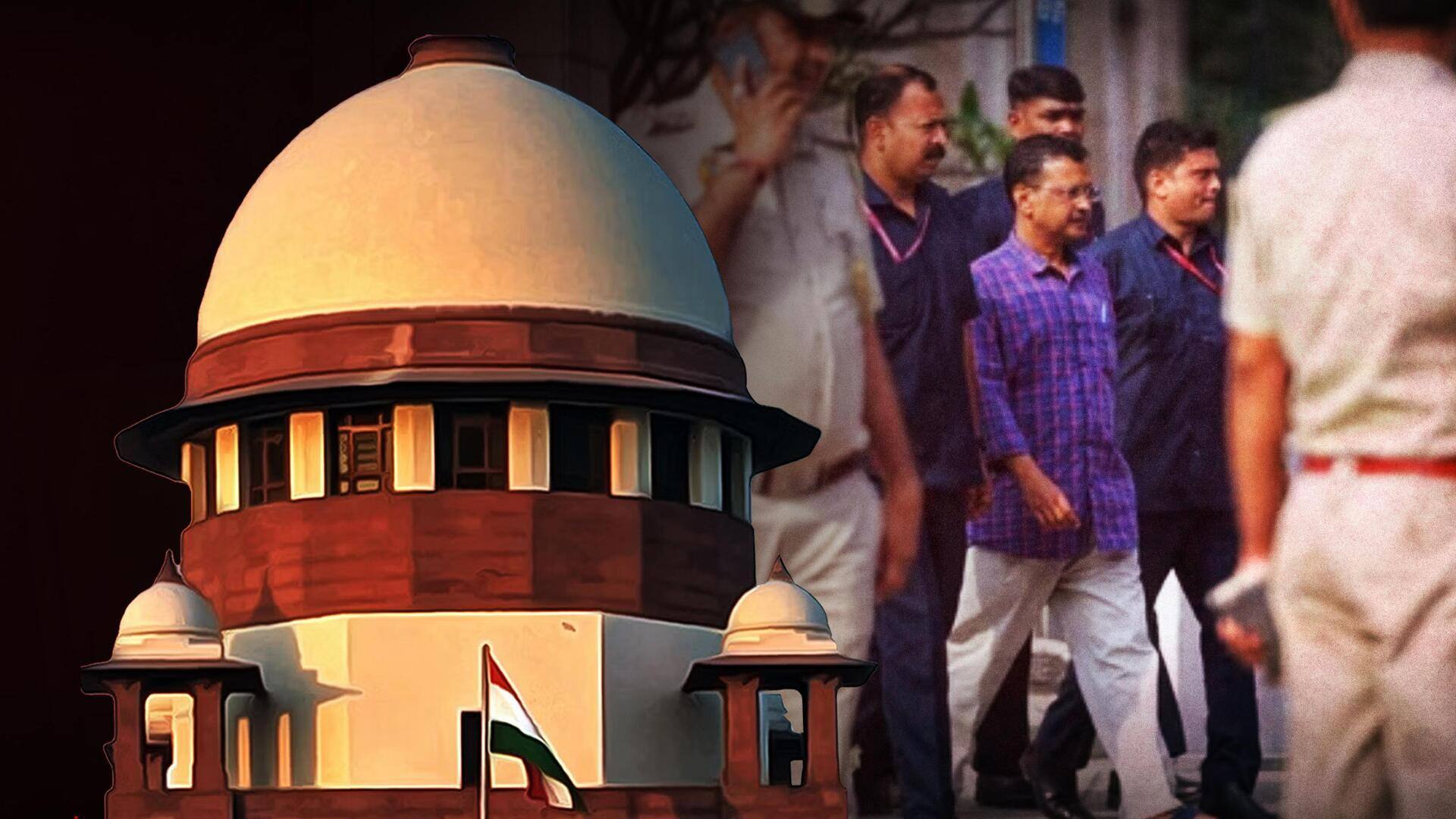
Is Arvind Kejriwal's arrest by ED legal? SC verdict today
What's the story
The Supreme Court is set to deliver its verdict on a petition filed by Delhi Chief Minister Arvind Kejriwal, challenging his arrest by the Enforcement Directorate (ED) in a money laundering case connected to the now-scrapped excise policy. The decision, which was reserved on May 17, will be handed down by a two-judge bench consisting of Justices Sanjiv Khanna and Dipankar Datta.
Context
Why does this story matter?
Kejriwal, the Aam Aadmi Party (AAP) chief, was arrested on March 21 by the ED in the excise policy case. The Delhi CM's case has been heard by the trial court, Delhi High Court, and the SC over the course of several months. Kejriwal had first challenged the April 9 Delhi High Court order that upheld his arrest as lawful citing his repeated non-compliance with summonses. On April 15, the SC sought a response from the ED regarding his plea.
Information
Kejriwal's bail stayed by SC
Kejriwal was granted a 21-day interim bail by the SC on May 10 to campaign for the Lok Sabha polls—with a surrender date of June 2. On June 20, he was granted bail by a Delhi trial court. However, the ED contested this decision, leading the Delhi HC to impose an interim stay on the court's order on June 21 and a detailed stay on June 25. Five days later he was arrested by the CBI in the same case.
During hearing
SC seeks files from ED
During the hearings, the apex court asked the ED to submit the files and stated, "We want to see the statements of witnesses recorded after Manish Sisodia's [former Delhi deputy chief minister] arrest, after the judgment denying bail to him, and before Kejriwal's arrest." Additional Solicitor General SV Raju mentioned finding more evidence on hawala transactions and WhatsApp chats. The bench also inquired if these were in the "grounds of arrest" provided to Kejriwal.
Response
ED fiiles chargesheet implicating Kejriwal
Raju replied that not everything must be shared, prompting the bench to ask, "How will you not give reasons...How will he challenge those reasons?" Meanwhile, the ED has filed a chargesheet in the Delhi liquor policy case, directly implicating Arvind Kejriwal in the party receiving a ₹100 crore kickback, the India Today reported. The chargesheet claims Kejriwal was involved with the "South Group" and Vijay Nair to secure these kickbacks.
Details
What ED chargesheet says
According to the probe agency, Nair acted on behalf of top AAP leaders, including Kejriwal. In his defense, Kejriwal told the ED that Nair worked under Delhi Ministers Atishi and Saurabh Bhardwaj, not him. The ED maintains that AAP leaders, including Kejriwal and Manish Sisodia, tailored the liquor policy to create loopholes favoring liquor sellers.
Background
Excise policy case explained
Central probe agencies have alleged irregularities in modifying Delhi's excise policy for 2021-22, granting undue benefits to license holders. In November 2021, the Delhi government introduced a new liquor policy, ceasing sales through government outlets and allowing private entities to apply for licenses to operate stores. The government claimed this policy would curb black marketing, boost revenue, and benefit consumers. However, the Delhi government later reverted to the old policy. Notably, Kejriwal and the AAP have denied any wrongdoing.